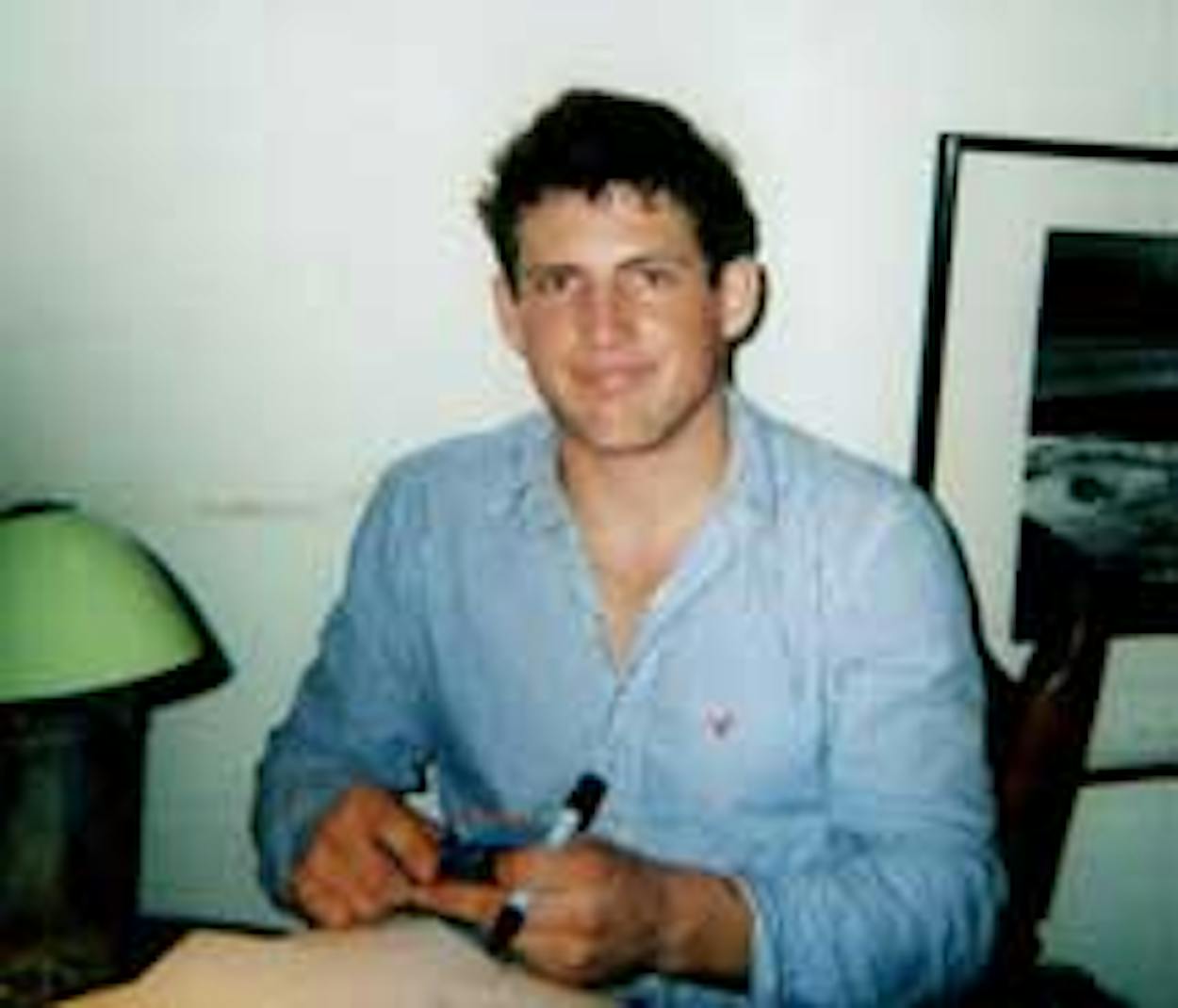The FBI was dealt an embarrassing blow earlier this week when a St. Paul, Minnesota, jury deadlocked over the fate of 22-year-old Austinite David McKay, a local activist who, until his arrest in September, worked behind the counter at a Thundercloud Subs sandwich shop. He and a group of friends, including 23-year-old Austinite Brad Crowder, traveled to St. Paul in August along with thousands of other activists from around the country to protest the Republican National Convention. The plan was to block streets and create diversions so that delegates could not reach the convention site—a strategy that resulted in clashes with police and the arrest of more than eight hundred people, mostly on misdemeanor charges. McKay was arrested on September 3 after a police raid on a local apartment yielded eight Molotov cocktails that he and Crowder had made. The raid was spurred by a conversation that McKay had had with a federal informant, in which McKay seemed to indicate that he wanted to firebomb police cars.
The FBI informant turned out to be another Austinite, Brandon Darby, a high-profile member of Austin’s radical progressive community, who had made a name for himself by leading valiant rescue efforts in the wake of Hurricane Katrina. Handsome, charismatic, and nearly a decade older than McKay and Crowder, Darby was someone who younger activists looked up to. Darby’s involvement in the case came as a shock to his friends and fellow activists, many of whom he had been spying on for the FBI since 2007.
According to some of these activists, it was Darby—not McKay or Crowder—who routinely engaged in “militant rhetoric” and who provoked “discord and aggression.” (They also describe him as “erratic,” “provocative,” and “somewhat crazy.”) One activist, Gabby Hicks, has said that Darby “was always the one to suggest violence, when the rest of us clearly disagreed with those strategies.” Many of Darby’s former associates believe he was an agent provocateur who not only encouraged McKay and Crowder to become more militant, but who ultimately entrapped them. At McKay’s trial last month, Darby admitted to receiving more than $12,000 from the FBI for his work.
In a recent interview with Diana Welch of the Austin Chronicle, Darby said that he had begun talking to the FBI after growing disenchanted with the radical left. In her incisive, well-researched piece, “The Informant,” Welch asks: “So when he had his personal epiphany, why didn’t Darby reach out to other activists and tell them about his change in world-view—rather than begin spying on them?” In reply, Darby tells her: “If I felt like the best thing I could have done to right my wrongs was to come out and say how I felt, I would have done so. I just didn’t feel like it was. I felt like I would be completely marginalized and nobody would want to hear my opinions.” Welch, whose article gives a detailed account of Darby’s transformation from “armed revolutionary to FBI informant,” then posits several thought-provoking questions, which Darby never adequately answers. “Why does he feel that he deserved the benefit of maturity and hindsight, when McKay and Crowder deserve multiple years in the pen?” Welch writes. “How does he justify robbing them of their chance to go through their own maturing process and personal evolution of political ideology?”
The St. Paul jury who deadlocked over McKay’s fate apparently had similar reservations about Darby. At trial, both he and McKay took the stand, with McKay arguing that it was the FBI’s informant—not he or Crowder—who had first brought up the idea of making Molotov cocktails. After the jury failed to reach a verdict, U.S. Chief Judge Michael Davis declared a mistrial, and released McKay on $25,000 bond. McKay’s new trial is set for March 16. He faces up to ten years in prison. Crowder pled guilty last month to possessing an unregistered firearm—the Molotov cocktails, that is—in return for federal prosecutors dropping two other firearm charges. He now faces 46 months in prison. After McKay’s case ended in a mistrial, Crowder’s public defender, Andrew Mohring, filed a motion with the court asking that his client be released on bond until sentencing. The motion states that the evidence at McKay’s trial revealed that Crowder had “made an affirmative decision to not use the Molotov cocktails.”
Last year, I briefly corresponded with McKay when I wrote about the torching of the governor’s mansion. (The mansion fire was sparked by a Molotov cocktail, leading the media to wonder if McKay and Crowder were to blame—a theory that the DPS has lent no credence to, and both men have denied.) From jail, McKay wrote:
“The consequences that I face are something I never dreamed of . . . The black-and-white case that villainizes me and Brad is far from the whole truth of things. [The FBI has] spent a lot of time and effort into investigating me (not to mention taxpayer’s money) and are basically making us the catch of the day . . . No doubt the plan [is] to make an example of us . . . I have no violence in my history . . . The fact is that I was arrested an hour before going to the St. Paul airport to fly back to Austin to come to work, and rejected my so-called friend (the informant’s) attempt to lure me into taking further actions. Many questions about his motivations to crucify us go unanswered to me. For he was . . . someone we followed and looked up to, who proclaimed himself a person of guidance and a person of action . . . But now it’s clear that I was only here to take his place for whatever consequence he avoids by sacrificing us.”








